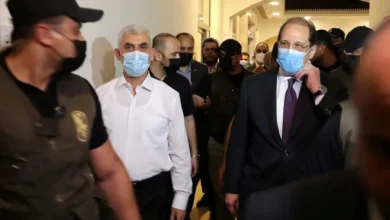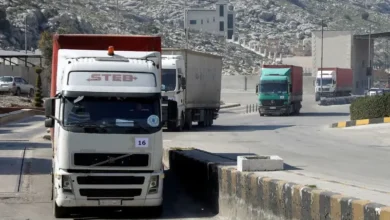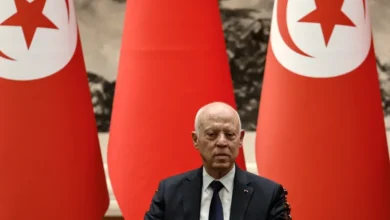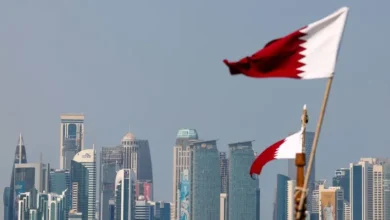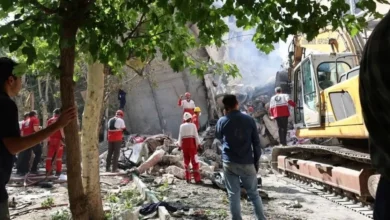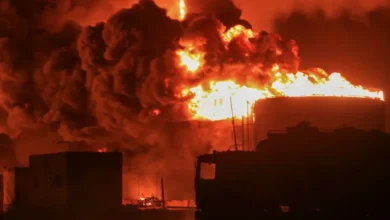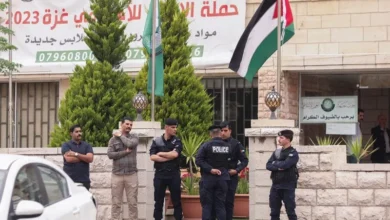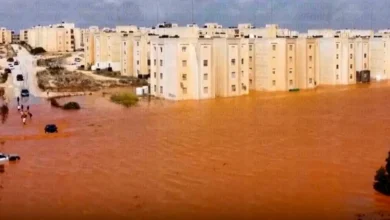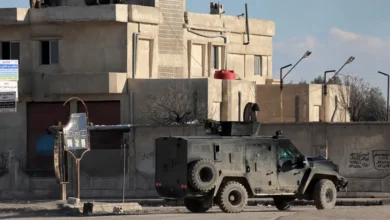Mixed reactions to COP28 text after UN, UAE conclude ‘successful’ climate conference
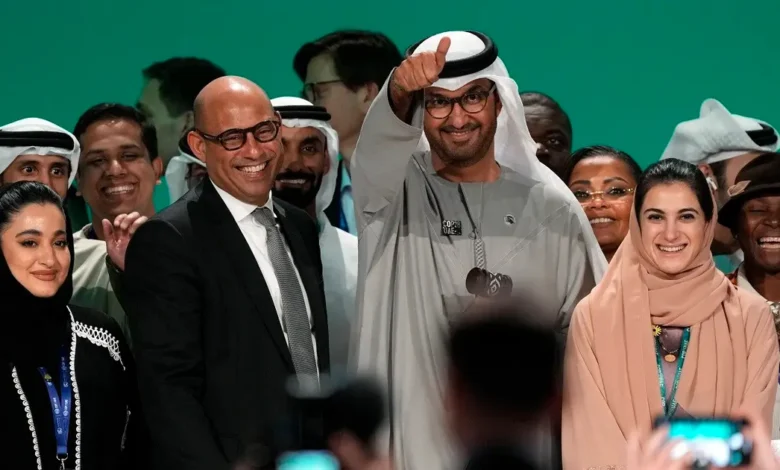
As scientists warned of a burning world, an historic agreement was reached to finally end destructive burning of fossil fuels by global leaders who gathered in Dubai for COP28. The unanimously approved Global Stocktake concluded the two-week UN climate conference on what many see as “a positive note.”
Over 198 partner nations agreed to transition away from fossil fuels to reach net zero, encouraged countries to submit economy-wide Nationally Determined Contributions (NDCs), include specific targets to triple renewables and double energy efficiency by 2030, and ignite the conversation around climate finance.
The outcome of the conference — presided by the oil giant ADNOC’s chief Sultan al-Jaber, who also heads the Masdar future energy company in Abu Dhabi, and is a minister in the Gulf state — has been hailed as a major milestone and a cause for optimism by many, but some climate experts and youth activists expressed mixed sentiments about the final text.

Al-Jaber called the deal “historic,” adding: “We have language on fossil fuel in our final agreement for the first time ever.”
He added a line on caution: “An agreement is only as good as its implementation,” he said. “We are what we do, not what we say. We must take the steps necessary to turn this agreement into tangible actions.”
The Outcome – Global Stocktake
“Whilst we didn’t turn the page on the fossil fuel era in Dubai, this outcome is the beginning of the end,” said UN Climate Change Executive Secretary Simon Stiell in his closing speech. “Now all governments and businesses need to turn these pledges into real-economy outcomes, without delay.”
The global stocktake is the central outcome of the climate conference as it acts as the foundation for countries to develop stronger climate action plans due by 2025.
The stocktake recognizes the science that indicates global greenhouse gas emissions need to be cut 43 percent by 2030, compared to 2019 levels, to limit global warming to 1.5°C. But it notes Parties are off track when it comes to meeting their Paris Agreement goals.
The stocktake calls on partner-nations to take actions towards tripling renewable energy capacity and doubling energy efficiency improvements by 2030. The list also includes accelerating efforts towards the phase-down of unabated coal power, phasing out inefficient fossil fuel subsidies, and other measures that drive the transition away from fossil fuels in energy systems, with developed countries urged to take the lead.
In the short-term, these countries are encouraged to come forward with ambitious, economy-wide emission reduction targets, covering all greenhouse gases, sectors and categories and aligned with the 1.5°C limit in their next round of climate action plans (known as nationally determined contributions) by 2025.
“COP28 has delivered, for the first time at climate talks, a clear call on countries to transition away from fossil fuels. The deal is not perfect, but one thing is clear — the world is no longer denying our harmful addiction to fossil fuels. Now we move beyond bargaining to action,” the UN Environment Program Executive Director Inger Andersen said in a statement shared .
“This means real action on a rapid transition away from fossil fuels, especially for the G20, and real action on the many other positives agreed at COP28,” he added.
“The reality, as outlined in UNEP’s Emissions Gap report released ahead of the COP, is that we are not on track to deliver a resilient, low-carbon and just world. This reality has not changed yet. Now the hard work of decarbonization must begin,” he said, adding that there is a need for greater finance and deliver on the Sustainable Development Goals (SDGs).
“We have the solutions; we know what needs to be done. And action can no longer wait,” Andersen said.
Mixed reactions
“There can be no new investments in fossil projects,” UAE-based youth activist Ayshka Najib told Al Arabiya English after the approval of the final text at COP28 in Dubai.
“…as the youth we are extremely disappointed,” the 21-year-old, who is a member of Fridays for Future MAPA, said.
“The new text mentions transitioning away from fossil fuels without any clear reduction pathways and only in the energy sector. But what about all the other uses of fossil fuels,” she asked rhetorically.
“This text fails to really identify the urgent need for clear mitigation pathways reducing coal, oil and gas in the next few years with sufficient funding commitments, not explicitly mentioning oil and gas, and focuses a lot more on emissions than fossil fuels,” she continued.
Najib, who organized and led protests during multiple days of the climate conference, said the text lacked “concrete outcomes other than just discussions” and a statement to feed into the next stocktake.
She also alleged that there was a limited plan of action on finance and funds to phase out fossil fuels.
“There are no forward-looking elements on the climate finance, no recognition of developed country obligations to fund,” the activist said, adding that the Global North group of wealthy, develop nations needs to fund a phase out that focusses on 2.1°C.
She said these group of wealthy nations are “continuously shifting money and responsibilities around and investing in funds without implementation which dilutes overall responsibility amongst all actors.”
During the final plenary session of the Dubai climate conference, where COP28 President Sultan al-Jaber announced the approval of the final text pending “no objections,” representatives of the Alliance of Small Island States (AOSIS) led by Samoa were not present.
Following al-Jaber’s keynote, Samoan delegate Anne Rasmussen voiced their frustration about the oversight.
“We didn’t want to interrupt the standing ovation when we came into the room, but we are a little confused about what happened. It seems that you just get on with the decisions and the small island developing states were not in the room.”
Najib, who said that her group has been in close contact with the AOSIS, “clearly witnessed a power dynamic in the room as the decisions were gaveled without allowing AOSIS to speak and hence being against consensus.”
“This clearly shows how the COP has co-opted the fight for survival of the most impacted countries, yet put no historical responsibility on the developed nations especially with no real grant based financial commitments to pay reparations,” she added.
Ahead of the international summit of 200 partner nations, the United Nations (UN) signed an agreement with the COP28 host outlining the legal basis for holding protests at COP28 in Dubai. They said, “there will be space available for climate activists to assemble peacefully and make their voices heard.”
The Blue Zone, governed by UN law saw peaceful protests and at least one march calling for a ceasefire in Gaza and climate action.
“As youth, the larger civil society movement, frontline defenders and communities, we carried the narrative and we delivered. There was a time when parties would not speak about fossil fuels, when they would not speak about debt justice, or equitable transitions. Our collective pressure is what got us to the point where these conversations, that’s way overdue, are happening in the negotiating rooms,” Najib said.
An official from the MENA office of the international campaign network Greenpeace told Al Arabiya English that COP28 provided an open and safe platform for civil society to express their views in a manner that ensured “effective and equitable participation” in the discussions and negotiations.
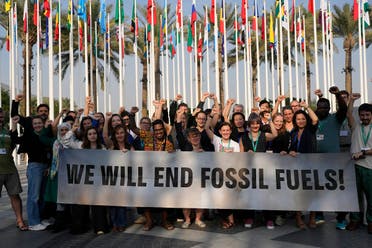
“Through their activism and demands for climate action, people power in Dubai demonstrated the power of collective voices in influencing the agenda. COP28, for the first time, has indicated the imperative to just and equitable transition away from fossil fuels, underscoring the impact of the longstanding people-driven campaign advocating for this shift over several decades,” Regional Campaigns lead at Greenpeace MENA Shady Khalil said.
He called for a “resolute and uncompromised commitment” to phase out all fossil fuels, and immediately end new coal, oil and gas projects.
“We were looking at this conference to deliver a just transition that upholds the principle of climate justice and ensures that no one is left behind. Key to this is a differentiation where developed countries go first and fastest,” he said, adding that this was not the outcome.
“We leave COP 28 and developing countries still find themselves without any assurance for the financial support necessary for their urgent and equitable transition to renewable energy,” the Greenpeace official said.
However, he said that the conference had an “impact from day one” with the operationalization of the Loss and Damage Fund, with more than $700 million pledged by countries to the new fund which will eventually provide a lifeline for vulnerable communities impacted by climate disaster. ”We commend the efforts of the COP presidency to conclude with a final acknowledgement of the need to transition away from fossil fuels and to mobilize climate finance.”
Like Najib, Khalil called for a commitment of the historically richest developed countries to take responsibility for the climate crisis and lead in contributions to the fund while also defining a replenishment cycle that will ensure its long-term sustainability.
As for communities on the front line of the crisis, Khalil said they need to see a “rapid, equitable, and well-funded phase-out of all fossil fuels together with a comprehensive finance package for developing countries to transition to renewables and cope with escalating climate impacts.”
In week two of the conference, the UN Climate Change High-Level Champion and President of the International Union for Conservation of Nature (IUCN) Razan al-Mubarak assured that these non-binding commitments will be held accountable by finance and tracked through metrics shared by agencies like the IUCN and impacted communities.
“One of the most important differentiators in this COP is those pledges were met by financial commitments. When you have a financial commitment to the pledge, you have a framework for action,” the Emirati official said at the time.
“All those actions need to be monitored and assessed… The credibility of the work that we’re doing needs to be addressed and monitored, but ultimately it also needs to be monitored by the communities that are safeguarding nature,” al-Mubarak, who is also an environment and wildlife veteran, said.
Outcomes “fall disappointingly short of compelling wealthy nations to fulfill their financial responsibilities.” – Neeshad Shafi, climate activist and environmentalist.
“…the final text could have been more equitable and a just transition on fossil fuels phase-out that is critical to mitigate the climate crisis,” Shafi, who is based in Qatar, told Al Arabiya English after the final deal was announced.
“Despite multiple rounds of applause inside the plenary, not all delegations were pleased with the outcome of the climate talks. Civil society representatives and climate activists, as well as delegations from small island developing countries were visibly unhappy with the outcome believing it didn’t do justice to the immediate threat of climate change to their communities and future.”
“At least 40 countries are highly dependent on oil and gas exports, some extremely so – like Iraq, Saudi Arabia, UAE, and Nigeria – so it’s no wonder these countries pushed back on terms like phase-out, but still maintained to keep just transition,” he added.
Qatar voiced “deep concern” with the 28th paragraph of the final text which discussed the phasing out of fossil fuel in a statement issued during the final plenary session.
The 28th paragraph of the Global Stocktake under Mitigation reads: “Further recognizes the need for deep, rapid and sustained reductions in greenhouse gas emissions in line with 1.5 °C pathways,” a sub-part of which calls for tripling renewable energy capacity, phasing down unabated coal, and transition away from fossil fuels in energy systems “in a just, orderly, and equitable manner.”
“It seems like we’ve lost sight of the Paris Agreement principle on common but differentiated responsibilities; and there was a focus on the sources of emissions instead of focusing on reduction,” the Qatari representative said.
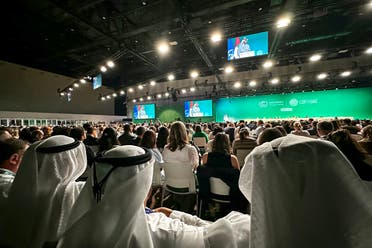
“The text has defined timelines instead of allowing the parties to determine their own indices based on their needs and national sustained circumstances and necessity. The text needs more clarification of the leadership role of developed states and developing states,” he added. “The text also lacks clarity with regard to the role of developing states.”
“We have reservations as to the formulation of paragraph 28, and I don’t want to view the absence of equity and common but differentiated responsibilities and a certain imposition of goals and timelines. And we cannot accept this kind of formulation away from equity and the principles of cooperation and development and the Paris Agreement principles. But such principles must be the cornerstones for our future work,” he concluded, thanking al-Jaber.
Saudi Arabia supported the final COP28 deal as it leaves countries to decide for themselves on suitable pathways to transition to cleaner sources of energy.
“The issue of immediate and gradual disposal (of fossil fuels) has been buried,” Saudi Arabia’s energy minister Prince Abdulaziz said in an interview on Wednesday, adding that the deal would not affect the ability of the world’s top oil exporter to sell its crude.
“The pharaoh methodology of dictating things has been buried, and so people are free in their choices.” – Saudi energy minister, Prince Abdulaziz al-Salman, referring to a set time frame for phasing out hydrocarbons.
The Saudi minister thanked the UAE, saying there was full cooperation and coordination between the two countries.
“There was a perfect cooperation between us, they did not leave us, we were always constantly coordinating and consulting, and we were given priority that I don’t think I have ever seen in any such conference,” he said.
Victoria Elizabeth of the US Climate Action Network (CAN) speaking to Al Arabiya English said: “From the initial multiple drafts we saw a consistent downhill trend. From a youth perspective and from a Black perspective and all the Global South – the first draft had a lot of language we actually wanted to see, it has equability and had just transition, it had funding mechanisms, it had implementation, and then, as the weeks went on, and as the days went on it got worse and worse on a grade scale on what this text is.”
“I would give it an F for failure,” Climate Action Network’s Victoria Elizabeth.
“It is very empty; empty words and no implementation on a global scale. I do think that we are still capable of having that North Star, of having that 1.5… but the issue is, specifically from a climate financing point of view, which is what I was tracking on, it’s going to be very hard. They have acknowledged that, in order to get there, we have to fund this just transition. We have to put in these hundreds of billions of dollars into all these, not only renewable energy practices, but also to phase out equitably these countries and these nations that are fossil fuel dependent.”
Pierre Friedlingstein, a professor at the University of Exeter and lead author of the Global Carbon Budget, said in a statement shared with Al Arabiya English: “I’m on the positive side here. The final text gives a very clear message that was never present in any of the previous 27 COPs. COP28 calls for a ‘transition away from fossil fuels in energy systems, so as to achieve net zero by 2050 in keeping with the science.’ Now countries around the world have to put these words into actions. Let’s stop blaming petro-states for selling fossil fuels, let’s focus on making sure our governments give us the option not to buy them.”
Dr David Armstrong McKay, part of the university’s Global Systems Institute, said: “Including the need to transition away from fossil fuels in energy is a welcome step after nearly three decades of COPs avoiding naming the key problem. However, the necessary fossil fuel phase-out across the board is left out, and there isn’t a binding plan to reduce emissions – countries are invited but not required to pursue a number of actions, including tripling renewable energy by 2030 on the one hand but also leaving the door open to continued oil and gas expansion and various climate boondoggles like large-scale carbon capture on the other.”
“Missing too is a commitment by developed countries to fund equitable fossil fuel phase-out in the Global South, and financial pledges for adaptation and loss and damage are far below what is already needed even at current warming levels. As with most COPs, some incremental progress has been made – but transformational action is required for the Paris Agreement to survive.”
“It’s a clear call for governments, business and investors to commit to a cleaner future,” independent climate change think tank E3G’s Senior Policy Advisor Anusha Mata said in a statement shared with Al Arabiya English. “All eyes are now on Parties to turn this into faster, real-world action. Glasgow language on coal phase-down is locked in, but we still need a swift response to global calls for no new coal now,” she added.
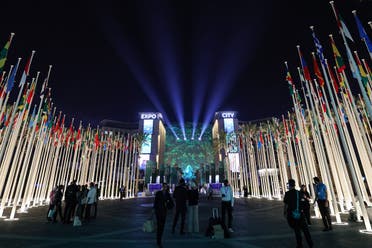
David Nicholson, Mercy Corps Chief Climate Officer, said: ”While there are some promising steps within the COP28 outcomes, such as the agreement to transition away from fossil fuels and operationalize the Loss and Damage fund, the conference failed to take the decisive action needed to implement and fund these changes equitably, considering the historical responsibilities of polluters. Once again, this COP failed to prioritize action on adaptation, which is a lifeline for women, men, and children who are losing their homes and livelihoods because of the climate crisis. We needed bigger steps towards integrating the Loss and Damage fund into the new climate finance goal, grounded in the principle that countries responsible for the climate crisis should be the ones providing the finance.”
“Climate finance played a central role in COP28 negotiations against a context of eroding trust, with developed countries still failing to fulfill their existing climate finance commitments and seeking to weaken responsibility for future financial commitments. In particular, adaptation finance, pledged to double since COP26 in Glasgow, lags behind growing needs, posing challenges for climate-vulnerable communities.”
“While the Global Stocktake does recognize the growing adaptation finance gap, as well as the need to provide public and grant-based finance to close this gap, more is needed to ensure communities — in particular those living in fragile and conflict-affected countries — can adapt and thrive. Unfortunately, the Global Goal on Adaptation, adopted at COP28, does not reflect the urgency we need and lacks any form of accountability from developed countries.”
“Despite incremental progress, COP28 fell short of meeting the urgent needs of a world on the brink of 3 degrees of warming, and failed to mobilize transformational change in adaptation, mitigation, finance, and beyond. The world expected a giant leap forward in ambition and urgency, and the result of COP28 is deeply disappointing, especially for millions whose existence is directly threatened by the impact of climate change. The responsibility now lies with leaders to heed the call for a more substantial and equitable response as we look toward COP29 in Baku.”
